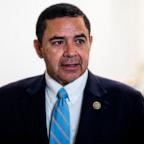Wall Street Analyst Tries to 'Save The Big Banks From Themselves'
Mike Mayo's book, Exile on Wall Street, describes how banks can save themselves.
Dec. 3, 201 — -- Mike Mayo says he is on the front lines of Occupy Wall Street's battle, which is unusual coming from a Wall Street analyst.
A widely-followed managing director of brokerage firm CLSA, Mayo, 48, says the "intersection" between Occupy Wall Street protesters and Wall Street analysts is "bigger than anyone realizes."
On the 10th anniversary of Enron's collapse this week, Mayo lamented that three failures that contributed to the Texas energy company's bankruptcy still remain: faulty incentives, accountability and government regulations.
"The abuses in our financial system haven't gone away even after Enron and WorldCom, even after the mortgage crisis," he told ABC News. "The same problems that got us into what were the largest corporate bankruptcies at the time are still in place."
Enron's $65.5 billion bankruptcy in 2001 was the largest before WorldCom surpassed it in 2002 when it was worth over $100 billion, according to Business Insider. But in 2008, the $327.9 billion Chapter 11 bankruptcy of Washington Mutual and nearly $700 billion bankruptcy of Lehman Brothers would dwarf both.
Mayo, based in New York City, is careful about describing how he feels about Occupy Wall Street, which has rallied against what the movement sees as "corporate greed" and a wide range of economic issues.
"My concerns sound like some of the same concerns of Occupy Wall Street," he said.
But Mayo, who has worked for a total of six banks, never mentions the Occupy Wall Street movement in his book, "Exile on Wall Street: One Analyst's Fight to Save the Big Banks from Themselves," released weeks ago by publisher Wiley. He said he started his book long before the Occupy Wall Street movement started in September -- at the time of Enron's collapse, when he was fired by one of his previous employers, Credit Suisse.
"This is my story -- written because the problems that I started writing about the time of Enron still exist today," he said. "Hopefully the book brings more visibility to the issues in a way that is accessible to the person on the street."
Mayo's first foray into the world of finance was as a staffer at the Federal Reserve in the late 1980s and early 90s, when Alan Greenspan was chairman. Mayo's "hero," however, is Greenspan's predecessor, Paul Volcker, who is credited with ending the high inflation that plagued the U.S. in the 70s and 80s.
"I respect him most because he never bought into the line—invariably offered by bankers—that regulators should do what's best for the banks because that will do the most good for the country," Mayo writes in his book. "Instead, [the goal of the Fed] is to ensure that the banking industry remains stable and helps our economy thrive."
Mayo says he believes in free markets, but failed incentives, accountability and the role of government in the world of finance is corrupting them.
As a case in point, Mayo writes that the CEOs of SunTrust and KeyCorp each made more than $20 million from 2008 through 2010, while their companies lost hundreds of millions of dollars.
"That's not capitalism; that's entitlement," Mayo writes.
"If we don't get it right in the free markets, there's going to be more regulation," he told ABC News. "The choice has been ours to lose. Allow free markets to operate as they should or have additional regulation and other outsiders determine the course of the conversation."




